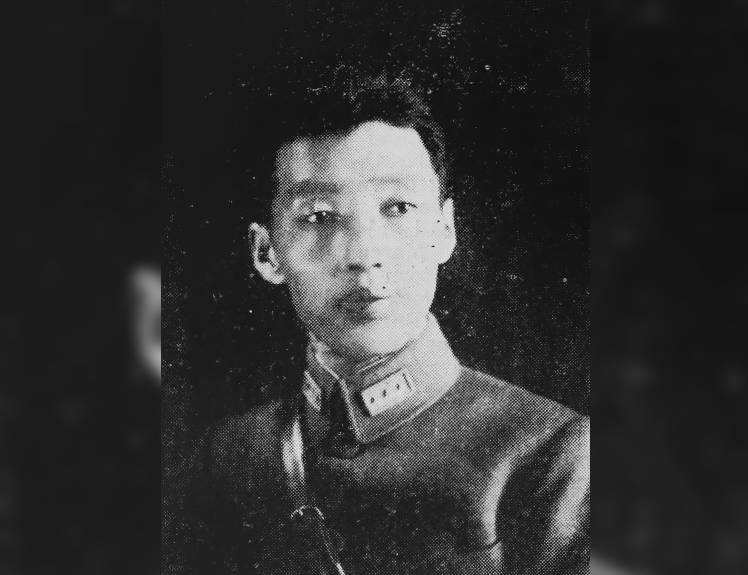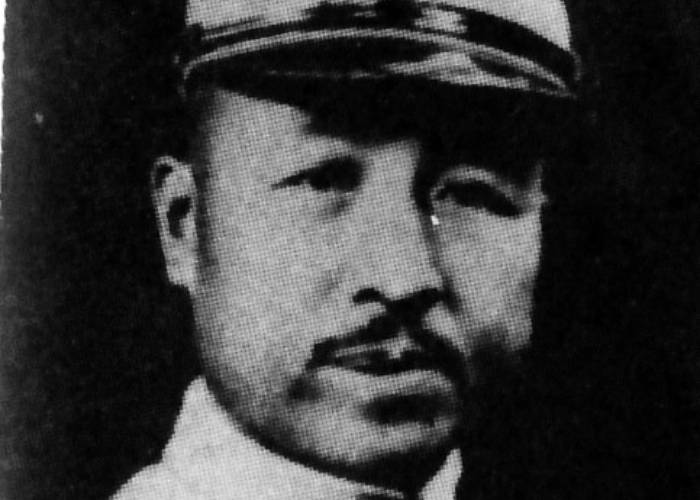The Extraordinary Traitor
Shi Yousan, a Chinese general in the National Revolutionary Army, was a man who focused more on his career than anything else. He switched sides so many times that, eventually, Shi Yousan became “The Defector General”. We have a timeline of all the major incidents.
He Was Born With Nothing
To know the general, we have to know about his youth. Shi Yousan was born in 1891 in Jiutai, Changchun City, to a poor family. As a youngster, he apprenticed at a grain store, where he became friends with Bi Guangyuan, the child of a rich family.

He Had Powerful Friends
With this friendship, Shi had the opportunity to study at Dongguan Elementary where he was taught by a young Shang Zhen. But he left school at 17 in 1908 to join Wu Peifu’s Third Division in the New Army. His unit was commanded by Cao Kun and was his first encounter with power.

The Pattern Started Early
He did his duty in Cao’s unit, but then he craved more. Less than five years later, he left Cao’s command and tried to join Feng Yuxiang’s forces. This would turn out to be one of his first betrayals of a former commander—and far from his last.
He Had To Prove Himself
After seeing Shi’s height, Feng rejected him due to his short stature. His height earned him the nickname, “eight inches”. Despite not allowing him to fight, Feng assigned Shi to the stables. This provided Shi with the perfect opportunity to play the long game.
His Intelligence Shone Through
While under Feng’s command, Shi showed his aptitude for combat tactics during strategy meetings. He also displayed good hand-to-hand combat skills that he acquired during his three-month martial arts teachings. And that wasn’t all he had to offer.
Well-Educated And Good At Planning
Despite being a school dropout, he was exceptionally well educated, more so than his fellow officers. This, in combination with his other skills, gave him the ability to climb Feng’s ranks. It was under Feng’s directive that he got his first taste of power.
A Leader At Heart
Shi was good at commanding and delegating to others in stressful situations, and his successes earned him the authority to assemble a special squad during the Zhili-Anhui conflict. It was one of the first major ways he proved his abilities.
Promotions Abound
In 1924, when Shi was 33, he led the North China National Protection Army, a unit with enough independence to engage in banditry near Beijing. In September of that same year, he earned a promotion to 6th Division commander. The ranks were just a ladder for Shi’s ambitions.
Shi Faced Someone He Betrayed
When Feng set the Beijing Coup into motion in 1924, Shi went up against his former commander, Cao Kun. This conflict earned Shi even more accolades and he became the commander of the 1st Army’s 8th Mixed Brigade.
His First Tactical Error
Conflicts continued to plague Shi’s section, and he recognized he was on the losing side. Because of this, he and fellow commander Han Fuju would make a dramatic choice. They intentionally gave up their holding, which caused Feng’s forces to retreat.
Fending For Himself
Defeat was nigh, and Feng escaped to the Soviet Union. Shi saw the end of Feng’s power and knew he had to make a choice. For his second major breach of trust, Shi and Han switched sides. Once was a coincidence, but twice indicated a pattern.
Flip-Flopping His Loyalty
Feng returned with new allies, and his new strength made Shi question his decision to change sides. So, he rejoined Feng as his commander-in-chief for the 5th Division of the Guominjun Army. But his initial perfidy wasn't without consequence.
Acknowledging Mistakes
Reportedly, making up for his breach of trust required that Shi bare his emotions and beg for forgiveness. Feng also sought to punish Shi by switching his chief-of-staff with someone Feng trusted. Unfortunately, this was only the start of their conflict.
Forgiveness At A Cost
Shi had his new chief-of-staff captured and buried alive to warn Feng against acting against him. This bad blood only served to weaken Shi’s ties to Feng. At this point, Shi’s list of enemies began to grow.
Discord Was Sown
A few years later, Shi had two armies under his control. Feng made a choice that meant Shi’s forces would encounter a major dilemma: he either went up against a monastery of monks or failed his initial assignment. Shi made a surprising and difficult choice.
Ambitions Clouding Judgement
Shi chose to complete his assignment. But soon afterwards, he defected. Shi was guaranteed to be the Provincial Chairman of Anjui under Chiang Kai-shek. To add insult to injury, he accused Feng of “the ten major crimes” and denounced him. But his duplicity still didn’t stop there.
Butting Heads
Shi and Chiang were at odds from the start. In December 1929, Shi allied with Chiang’s rival, Tang Shengzhi, and insulted Chiang publicly. Through a series of conflicts, Tang was removed from the palace and Shi reconnected once again with Feng Yuxiang.
Temptation Strikes Again
So far, the count for his betrayals is at five. And he was just getting started. In 1930, Shi lost several important conflicts. He was tempted by concessions to rejoin the Kuomintang—led by Chiang Kai-shek—which brought about his next loyalty stunts.
Friends And Traitors
Shi sent a letter to He Yingqin, a general of the Kuomintang and a close ally of Chiang Kai-shek. In it, he and Han Fuju traded their loyalties in exchange for generosity toward Feng’s defecting generals. This might have been the last straw that broke Feng and Shi’s alliance forever.
His Actions Had Consequences
This double-dealing was a huge blow to Feng. He announced his retirement after losing a third of his forces. Shi was rewarded with 5 million yuan and given the command of the 13th Route of the Anti-Rebel Army. Finally, Shi seemed to have found his place.
The Beginning Of His Covert Actions
On the outside, Shi was a Kuomintang loyalist. But covertly, Shi helped the anti-Chiang forces led by Sun Dianying, who had plans to abduct Chiang. But their abduction forces were thwarted on the day of the operation.
Adding To His List Of Allies—And Enemies
Shi still wasn’t satisfied with his position. In 1931, Shi and fellow warlord Zhang Xueliang became allies. Both had left Feng’s forces for the Kuomintang, and this linked the two immediately. This would only be the start of their collaboration.
Using His Connections To His Own Gain
With Zhang’s funding, Shi formed a force of tens of thousands of former Feng and Yan officers. He used this force to exert his control over the area, but it still wasn’t enough. His actions didn’t end there.
Playing The Field
He also teamed up with another anti-Chiang leader, Wang Jingwei, and they promised him a position in their future government in exchange for his cooperation. But just because he was cooperating with Wang Jingwei didn’t mean that was his only role.
An Opportunity Arose
In mid-1931, his alliance with Zhang Xueliang ended as Zhang passed due to illness. With Zhang no longer leading his territory, Shi saw an opportunity to advance his own agenda. This new information caused Shi to make a terrible mistake.
Opponents Caught On To His Actions
Shi rallied his officers—partially funded by the late Zhang—and set out to take the territory for himself. But he was thwarted by his enemy-turned-friend, Chiang Kai-shek. Not only that, but Zhang Xueliang was actually alive and aiding Chiang in stopping Shi.
Escaping The Spotlight
This brought Shi’s military endeavors to a halt for a while, but that didn’t mean he wasn’t making plans. He reconnected with his ally Han while he was away. But this alliance spelled trouble for Shi.
A Major Player Entered The Field
The duplicitous Shi needed new allies. He turned to stealthy meetings with General Kenji Doihara of Japan. He also became friends with Lui Guitang, who had been recruiting Chinese warlords to Japan. Shi kept these connections secret, but that still didn’t help him.
He Almost Lost It All
Chiang Kai-shek had enough of Shi’s treachery, so he arranged an attempt on Shi’s life. Shi’s hot pot was poisoned—but Shi knew something was wrong due to his chef’s stress. He forced the chef to admit what happened under intimidation, and it only solidified his bad faith.
Causing More Conflict
The next time Shi betrayed his company was in 1935, leading up to the Second Sino-Japanese conflict. He went against his Japanese allies to support Kuomintang’s opposition to the invading Japanese forces. And that wasn’t all he had up his sleeve.
Greed Takes Control
Shi helped Kuomintang and General Chiang while still making strides to remove Chiang from power. After all these years, Shi had enough and wanted Chiang’s role for himself. He wasn’t successful at overthrowing Chiang, but that didn’t stop Shi from trying something else extreme.
His Career Hit A Speed Bump
Beginning in 1938, Shi exposed Japanese army secrets to the Chinese Communist Party, who fought against the Kuomintang. But he realized the communist party wasn't going to promote him or assign him a large enough command. So, he changed his allegiances again.
Promises Are Broken
In 1939, Shi returned to the Kuomintang when they promised him a high-up position in Northern China. But he kept contact with his friends in the Japanese army and contributed to getting rid of anti-Japanese adherents. But there’s more to this story.
Repercussions Knock At His Door
Shi wholeheartedly betrayed the communist party and staged a mutiny in 1939. This was mere months after returning to the Kuomintang and a year after he leaked information to the communists. This put his whole world in danger.
He Made An Escape Attempt
Shi escaped from the communist forces and fled to a village near Huangjia. There, he hoped to use a fellow Kuomintang general’s forces to help him escape. But he was discovered by a secret communist agent who foiled his plans.
One Last Hope
The secret agent knew what happened with Shi and warned the Kuomintang general of the situation. Shi escaped, leaving his fellow general and his forces to battle the communist forces. But this wasn’t the last Shi saw of the communists.
His Last Secret Unveiled
All these events led to Shi’s final, ultimate deception. This whole time, he kept his links to the Imperial Japanese Army under wraps. But now, he drew on those ties to make his last stand against his former comrades.
His Final Stand
In 1940, Shi struck back against all parties of China’s political spectrum, both the communist party and the Kuomintang. If he succeeded, he’d be given a “puppet regime” controlled by Japan in Southeastern China. But this was where he met his downfall.
A Personal Betrayal Of His Own
Shi’s correspondence with the Japanese forces was uncovered by his sworn brother, General Gao Shuxun, who confronted him about the disloyalty. Gao revealed this treachery to Chiang’s advisors, and he was given the order to execute Shi for treason. Even though Shi begged for his life, he was buried on the banks of the Yellow River, still alive.
The Last Price To Pay
With a total of 16 betrayals, Shi Yousan met a rather violent and terrifying end. He had made no friends, and his list of enemies grew longer by the day. His actions earned him the nickname of “Defector General”, and “Shi Sanfan”, which means “Shi [who] turns three times”. He was buried on his 49th birthday.